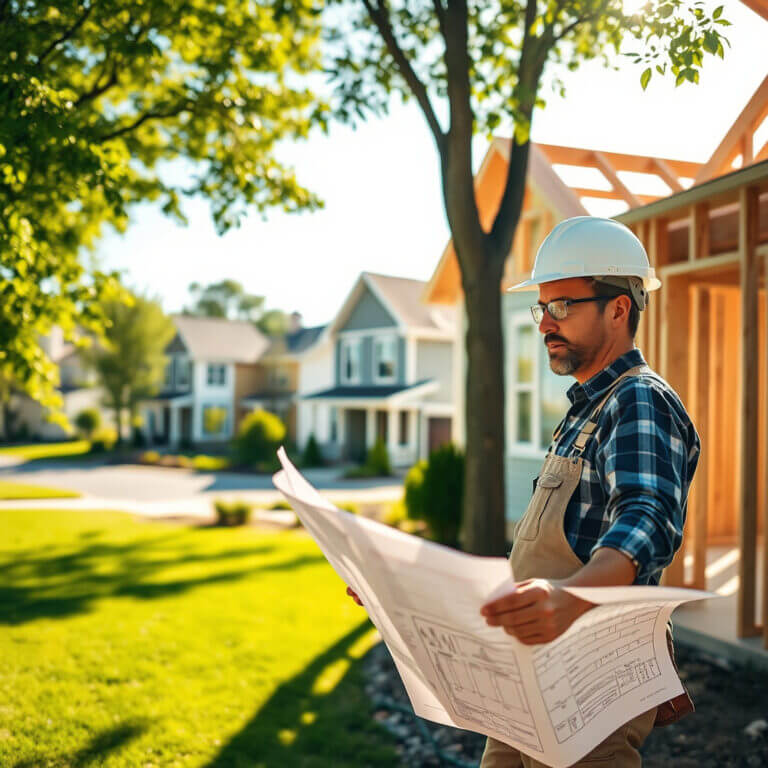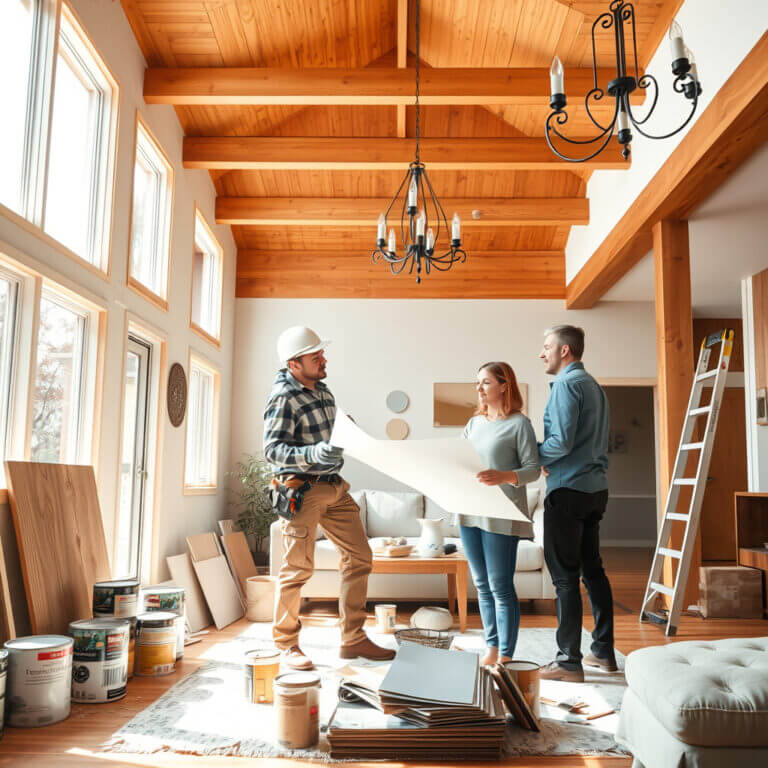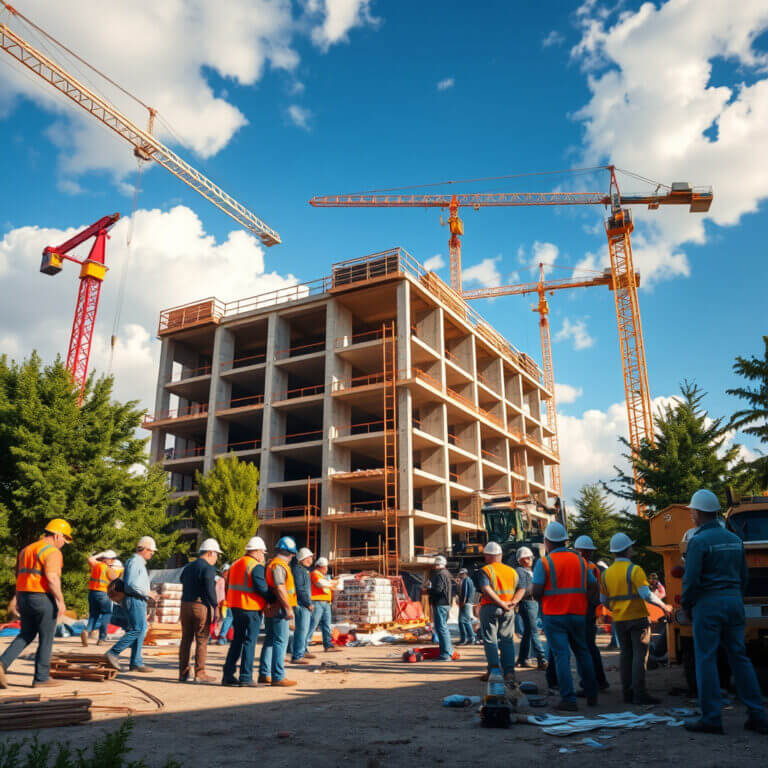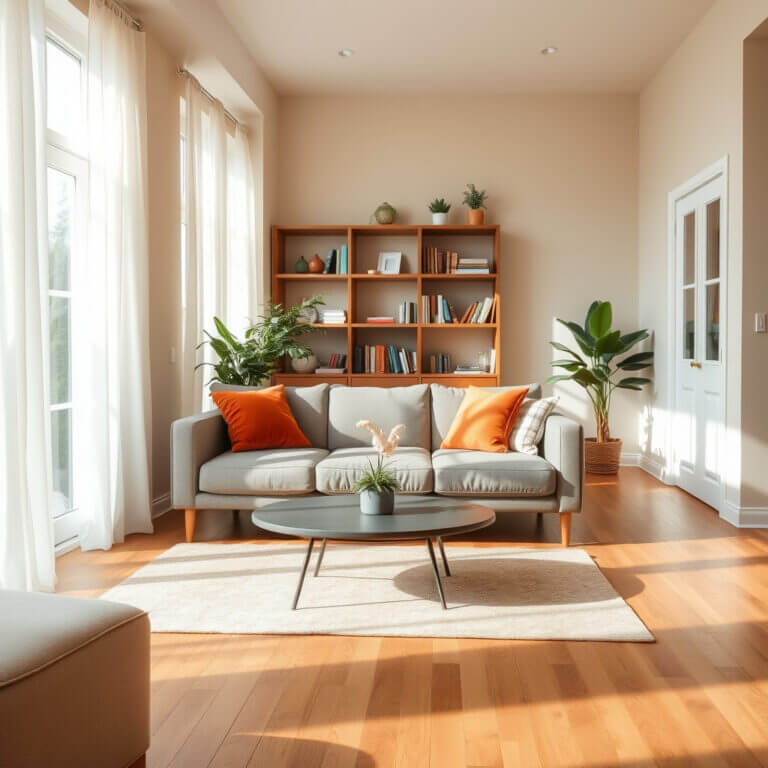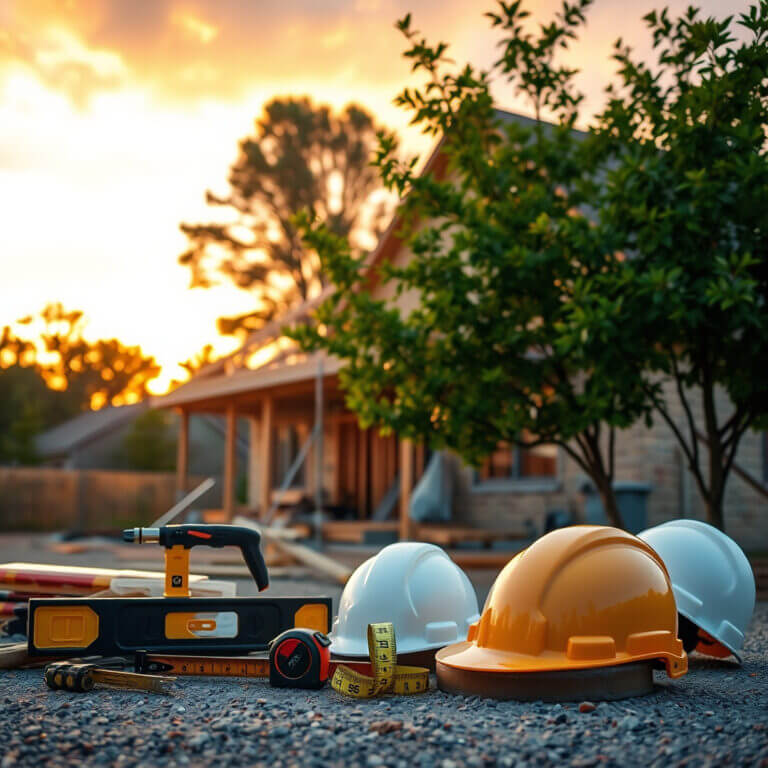Home addition cost per square foot Massachusetts refers to the average expense involved in expanding a home in the state, calculated by square footage.
Are you considering expanding your home in Massachusetts? Understanding the home addition cost per square foot Massachusetts is crucial for your budgeting process.
In this post, we will dive deep into the factors influencing costs, the average expenses, and how to effectively plan your home addition project.
By the end, you’ll have a clearer picture of what to expect financially, empowering you to make informed decisions.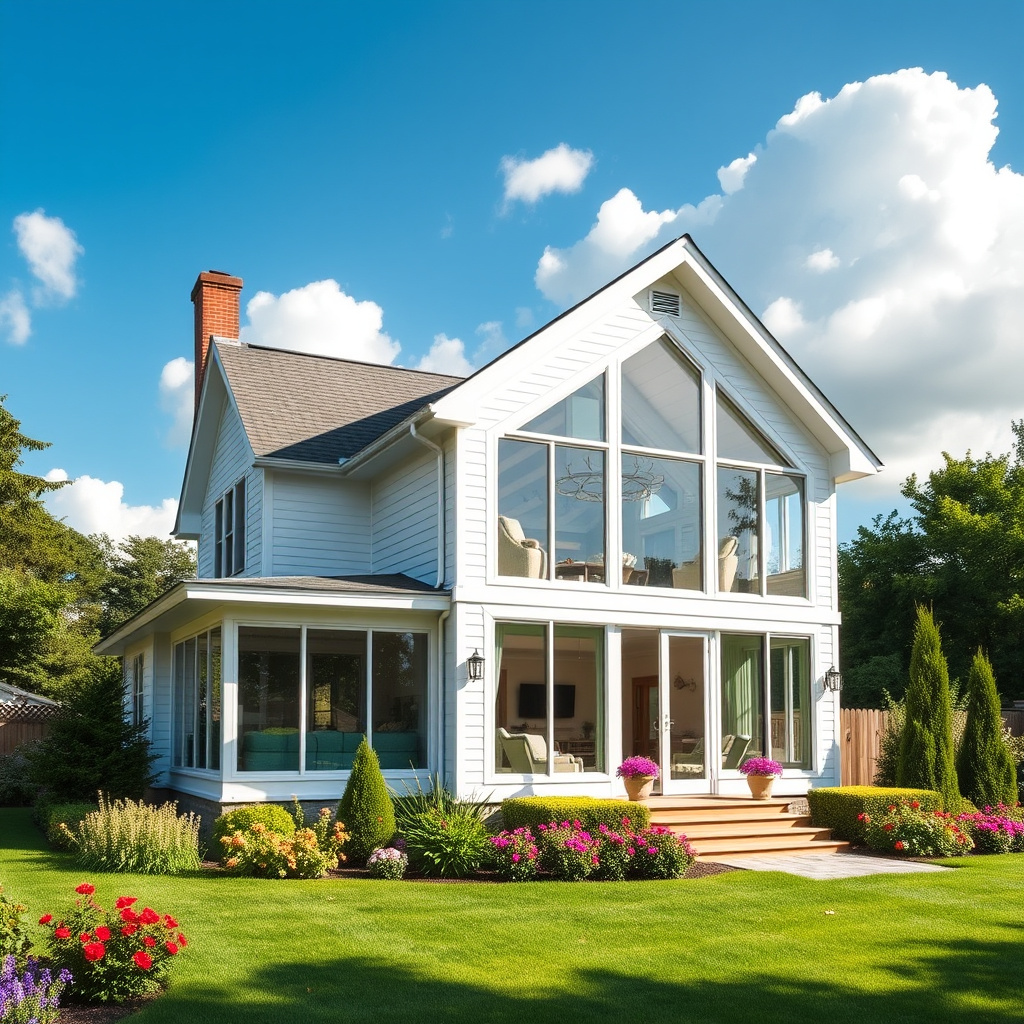
Breaking Down Home Addition Costs: A Comprehensive Overview
When it comes to expanding your living space, understanding the costs associated with a home addition is crucial. Home additions can vary widely in price based on location, design, and the specific features you want to include. If you’re considering a project in Massachusetts, it’s essential to know what factors will influence your overall investment.
Understanding Costs Per Square Foot
One of the primary metrics to look at when planning a home addition is the home addition cost per square foot Massachusetts. Generally, you can expect to pay anywhere from $150 to $300 per square foot, but this can fluctuate based on various elements such as the complexity of the design, the quality of materials, and labor costs in your area. For example, a simple room addition may fall on the lower end of that spectrum, while a more elaborate structure—perhaps one that includes custom features or high-end finishes—will likely push the costs higher.
Factors Influencing Costs
Several factors can significantly impact the final price of your home addition. Here are some key elements to consider:
- Design and Complexity: A straightforward addition will generally be less expensive than a more intricate design that requires specialized labor.
- Materials: The choice of materials plays a vital role. High-quality materials will increase costs but can add value and longevity to your addition.
- Labor: Hiring skilled professionals is essential. In areas like Boston, where demand for skilled labor is high, costs may rise accordingly.
- Permits: Obtaining a building permit Massachusetts can add to your overall expenses. It’s essential to factor in these costs early in your planning process.
Budgeting for Your Addition
Creating a realistic budget involves more than just estimating the cost per square foot. It’s important to account for additional expenses such as:
- Site Preparation: Clearing and preparing your yard for construction can incur significant costs, depending on the size of the area.
- Utilities: If your addition requires new electrical, plumbing, or HVAC systems, these can add to your overall budget.
- Interior Finishing: Don’t forget to budget for flooring, paint, and furnishings that will make your new space feel complete.
Maximizing Value
To ensure you get the most out of your investment, consider how your home addition will affect your home’s value. Projects like kitchen remodeling Boston MA or bathroom remodeling often yield high returns, making them worth the initial expense. Additionally, improving your home’s digital presence through effective construction marketing Massachusetts can attract potential buyers and increase perceived value.
Final Thoughts
Understanding the various components that contribute to the cost of a home addition is key to making informed decisions. By carefully planning your budget and considering all aspects of the project, you can create a space that meets your needs while enhancing the overall value of your home. As you embark on this journey, keep in mind that effective lead generation for construction businesses and smart small business marketing strategies can also play a role in managing costs and finding the right professionals for your project.
Key Considerations Before Starting Your Home Addition Project
When planning a home addition, there are several important factors to keep in mind. This journey can be both exciting and daunting, but understanding the key considerations can make it smoother and more enjoyable.
Understand Your Needs and Goals
Before diving into the logistics, take a moment to reflect on what you truly need from your home addition. Are you looking for extra space for a growing family, a home office, or perhaps an updated kitchen? Identifying your goals will help shape the design and functionality of the new space.
Budgeting Wisely
Budgeting is one of the most critical aspects of any home project. While it’s essential to know the home addition cost per square foot Massachusetts, it’s equally important to include other expenses such as permits, labor, and materials. Always set aside a contingency fund for unexpected costs that may arise during construction. This will help you avoid financial stress as the project progresses.
Permitting and Regulations
Navigating the world of permits can be overwhelming, but it’s a crucial step in the home addition process. Each state has its regulations, and in Massachusetts, obtaining a building permit Massachusetts is essential before starting any construction. Check with your local authorities to understand the necessary permits and regulations, as failing to comply can lead to costly delays or fines.
Choosing the Right Contractor
Finding the right contractor can significantly impact the success of your home addition. Look for professionals with experience in home renovation Massachusetts. Read reviews, ask for recommendations, and don’t hesitate to interview multiple contractors. A good contractor will understand your vision and work within your budget while providing valuable insight into the construction process.
Design Considerations
The design of your addition should complement your existing home while serving its purpose effectively. Think about how the new space will flow with the rest of your house. Whether you’re considering kitchen remodeling Boston MA or expanding your living area, hiring an architect or designer can help ensure that the new addition enhances both functionality and aesthetics.
Impact on Daily Life
Consider how the construction will affect your daily routine. Home additions can be disruptive, so planning ahead is crucial. Communicate with your contractor about the timeline and any potential inconveniences. Being prepared can help mitigate stress during the construction phase.
Future Resale Value
While your home addition should cater to your current needs, it’s also wise to think about its impact on your home’s resale value. A well-planned addition can increase your property’s appeal and marketability. Be mindful of trends in your area and consider how the changes will resonate with future buyers.
Utilizing Digital Tools
In the digital age, establishing a strong online presence can be beneficial, especially for contractors involved in your project. Investing in SEO for construction industry and leveraging social media for contractors can enhance visibility and attract skilled professionals who can help bring your vision to life. These marketing strategies can ensure you find the right talent for your home addition project.
By carefully considering these factors before starting your home addition, you can create a space that not only meets your needs but also enhances the overall value of your home. This thoughtful approach will contribute to a successful and fulfilling renovation experience.
Budgeting for Your Home Addition: Tips and Tricks
When planning a home addition, one of the most crucial aspects to consider is your budget. Knowing how to effectively allocate your resources can mean the difference between a successful project and unexpected financial strain. Below are some practical tips to help you navigate the budgeting process for your home expansion.
Understand the Costs Involved
Before diving into the specifics, it’s essential to grasp what goes into the overall expenses. The home addition cost per square foot in Massachusetts can vary significantly based on several factors. These include the type of materials you choose, labor costs, and any necessary permits.
- Materials: High-quality materials may cost more upfront but can save you money in the long run through durability.
- Labor Costs: Hiring reputable contractors can be an investment, but it often pays off with superior craftsmanship.
- Permits: Don’t forget to budget for a building permit in Massachusetts. These fees can add up and should be factored into your overall plan.
Create a Detailed Budget
A well-structured budget outlines all potential costs and helps you stay organized. Start by breaking down your expenses into categories:
- Design and Planning: Include fees for architects or interior designers if needed.
- Construction Costs: This should cover labor, materials, and any subcontractors you might need, such as roofing contractors in Worcester MA or specialists for bathroom remodeling.
- Contingency Fund: Set aside 10-20% of your budget for unforeseen expenses.
Research and Compare
In the current market, it’s essential to research your options thoroughly. Look for local contractors that fit your budget while maintaining quality. Pay attention to their online presence; good digital presence for contractors often indicates a reputable business. Gather quotes from multiple sources and compare them to ensure you’re getting a fair deal.
Consider Financing Options
If your budget is tight, consider various financing methods. Home equity loans or lines of credit can provide the necessary funds without straining your finances. Always read the fine print and ensure you understand your repayment options.
Plan for the Long Term
While it’s tempting to focus solely on the immediate costs, think about the long-term value of your addition. Investing in quality materials and skilled labor can enhance your home’s value significantly. Whether it’s a new kitchen remodeling in Boston MA or an extra room, these improvements can pay off when it comes time to sell.
By taking the time to carefully plan and budget for your home addition, you can create a space that not only meets your needs today but also adds value to your property for years to come.
Choosing the Right Contractors for Your Home Addition
When you’re embarking on a home addition project, the choice of contractors can significantly influence the outcome of your endeavor. It’s essential to find professionals who not only understand your vision but also bring expertise and reliability to the table. Here are some key steps to guide you through this crucial decision-making process.
Understand Your Project Requirements
Before you start contacting contractors, clearly define what you want. Are you looking to expand your living space with a new room, or perhaps enhance your kitchen with a remodel? Understanding the specifics of your project will help you communicate effectively with potential contractors. This clarity will also assist them in providing accurate estimates related to home renovation Massachusetts.
Research Local Contractors
The next step is to research local contractors who specialize in home additions. Look for professionals with a strong reputation in your area. You might want to focus on those with experience in specific projects like kitchen remodeling Boston MA, bathroom remodeling, or even general home additions. Online reviews and testimonials can be invaluable in gauging their reliability and quality of work.
Check Credentials and Experience
Once you’ve shortlisted potential contractors, check their credentials. Ensure they are licensed and insured. A valid license indicates that they meet the state’s standards for construction. Additionally, inquire about their experience. Ask how long they have been in business and if they have worked on projects similar to yours. This can provide insights into their expertise and help you feel more confident in your choice.
Request Detailed Estimates
After narrowing down your options, request detailed estimates from each contractor. A comprehensive estimate should break down costs clearly, allowing you to compare them effectively. Inquire about the home addition cost per square foot Massachusetts as this can vary widely. Ensure that all aspects of the project are covered, including materials, labor, and any potential additional costs.
Review Past Work
Ask for examples of previous projects the contractors have completed. This not only showcases their capabilities but also helps you envision how your project might turn out. If possible, visit some of their completed projects or ask for references to talk directly with past clients about their experiences.
Consider Communication and Rapport
Effective communication is vital for a successful home addition. During your initial meetings, assess how well the contractor listens to your ideas and concerns. A good contractor should be approachable and responsive. Building a rapport can lead to a smoother project flow and ensure your vision is realized as intended.
Discuss Timelines and Availability
Understanding the contractor’s timeline is equally important. Discuss when they can start your project and how long they expect it to take. Make sure their schedule aligns with your plans, especially if you’re working within a specific timeframe. Additionally, check their availability for any follow-up work or adjustments after the project is completed.
Evaluate Contract Terms
Before making a final decision, carefully review the contract terms. Ensure everything is documented clearly, including timelines, costs, and payment schedules. Pay attention to the details regarding building permits, as obtaining the correct building permit Massachusetts is crucial for compliance with local regulations.
Trust Your Instincts
Finally, trust your instincts. Choose a contractor not just for their qualifications but also for how you feel about them. A positive working relationship can make all the difference in the success of your home addition.
By following these steps, you can confidently select the right contractors for your project. With the right team, your dream home addition can become a reality, enhancing your living space and adding value to your home.
Maximizing Space and Value: Smart Design Tips for Home Additions
When considering a home addition, making the most of your space while simultaneously enhancing value is essential. Thoughtful design can transform an ordinary extension into a remarkable asset. Here are some smart tips to guide you through this process.
Embrace Open Concepts
Open floor plans are increasingly popular and provide a sense of spaciousness. By removing walls between common areas, you create a fluid living environment that feels larger. This design choice not only improves natural light flow but also enhances social interaction, making your home more inviting.
Utilize Vertical Space
Don’t forget to look up! Incorporating tall shelves or cabinets can maximize storage without consuming valuable floor space. Additionally, high ceilings can create an airy feel, making your addition seem even more expansive. Consider installing large windows or skylights to further brighten the area, enhancing both aesthetics and functionality.
Incorporate Multi-Functional Spaces
Designing rooms that serve multiple purposes can significantly enhance your home’s utility. For example, a guest bedroom can double as a home office, especially when furnished with a foldable desk or a Murphy bed. This versatility not only saves space but can also appeal to potential buyers, increasing your home’s value.
Focus on Energy Efficiency
Incorporating energy-efficient features into your addition can lead to long-term savings and increased property value. Consider installing energy-efficient windows, proper insulation, and sustainable materials. These features not only reduce utility costs but also appeal to environmentally conscious buyers.
Choose Complementary Design Elements
Your addition should seamlessly blend with the existing structure. Pay attention to architectural styles, rooflines, and materials. Consistency in design not only maintains the aesthetic appeal but also ensures that your home feels cohesive. When planning, consult with roofing contractors Worcester MA to ensure that the roof of your new addition matches the existing structure.
Prioritize Natural Light
Natural light can make any space feel larger and more inviting. Consider large windows, sliding glass doors, or even a sunroom to bring the outdoors inside. A well-lit space can improve mood and productivity, making it a desirable feature for any homeowner.
Consider Outdoor Integration
If your property allows, think about creating an outdoor living area that connects with your addition. Decks, patios, or landscaped gardens can extend your living space and enhance your home’s overall appeal. This integration is particularly attractive, as it provides additional entertaining options and outdoor enjoyment.
Work with Professionals
Navigating the complexities of home renovation Massachusetts requires expertise. Collaborating with skilled architects and contractors ensures that your vision is executed correctly. They can offer invaluable advice on how to maximize space and value while adhering to local regulations, such as obtaining the necessary building permit Massachusetts.
Stay Within Budget
While it’s easy to get carried away, staying within your budget is crucial. Discuss your financial limitations upfront with your contractors to avoid surprises later. This approach will help you prioritize must-have features over nice-to-haves, ensuring your addition meets your needs without breaking the bank.
By focusing on these design strategies, you can create a home addition that not only maximizes space and value but also enhances your overall living experience. Whether you’re interested in kitchen remodeling Boston MA or expanding your bathroom, each choice contributes to a well-rounded, functional home that stands out in the market.
Navigating Financing Options for Your Home Addition
When considering a home addition, understanding your financing options is crucial. A project of this magnitude can bring excitement, but it also requires careful financial planning. Whether you’re looking to expand your living space, add a new room, or enhance your property’s value, knowing how to navigate the various financing avenues available can make all the difference.
Understanding Your Financial Landscape
Before diving into specific financing options, take a moment to evaluate your current financial situation. This includes assessing your savings, monthly income, and existing debts. Having a clear picture of your finances will empower you to choose the best funding method for your home addition project.
Home Equity Loans and Lines of Credit
One popular option for financing a home addition is through home equity loans or lines of credit (HELOC). These allow you to borrow against the equity you’ve built in your home. With interest rates typically lower than personal loans, they can be an attractive option for many homeowners. However, it’s essential to understand that using your home as collateral carries risks; if you fail to repay, you could potentially lose your home.
Personal Loans
Another avenue to consider is a personal loan. These loans are unsecured, meaning you don’t need to put your home at risk. While they may come with higher interest rates compared to secured loans, they can be a viable choice for smaller projects or if you prefer not to tap into your home’s equity. Always compare rates from different lenders to ensure you’re getting the best deal.
Government Programs
Explore any local or federal government programs that may assist homeowners in financing renovations. Certain programs are designed to help with home renovation in Massachusetts, offering favorable terms for eligible applicants. These can include low-interest loans or grants for specific projects, such as energy efficiency upgrades.
Construction Financing
For those embarking on larger projects, construction financing might be the best fit. This type of loan is specifically tailored for building or renovating homes. It typically covers the cost of construction as progress is made, which means you only pay interest on the amount disbursed. Understanding the timelines and payment structures associated with construction loans is vital to managing your budget effectively.
Credit Cards and Other Short-Term Options
If your project is relatively small or if you need to cover costs quickly, using a credit card could be an option. However, keep in mind the interest rates can be high, so it’s advisable to pay off the balance as soon as possible. Additionally, consider seeking out promotional offers from credit cards that provide 0% interest for an introductory period.
Working with Contractors
As you navigate your financing options, keep in mind that collaborating with reputable contractors is invaluable. They can provide you with accurate cost estimates and help you understand the home addition cost per square foot Massachusetts. This insight is essential when creating your budget and selecting the right financing option.
Marketing Your Project
Lastly, if you’re a contractor or a business involved in home additions, having a strong digital presence can greatly enhance your reach to potential clients. Implementing small business marketing strategies and utilizing social media for contractors can help you connect with homeowners looking to expand their spaces. Additionally, focusing on SEO for the construction industry can improve your visibility online, leading to more project opportunities.
In summary, financing your home addition involves a range of options that cater to different financial situations. By understanding these avenues, you’re better equipped to make informed decisions that align with your goals and budget.
Estimating Timeframes: How Long Will Your Home Addition Take?
When considering a home addition, one of the most pressing questions homeowners face is, “How long will it take?” Understanding the timeframe for your project is crucial for planning, budgeting, and managing expectations. Several factors come into play, each contributing to the overall duration of your home addition.
Project Scope and Complexity
The first step in estimating your timeline is to determine the scope of your project. A simple room extension will naturally take less time than a complex multi-room addition. Consider the following aspects:
- Design Plans: Creating detailed design plans can take anywhere from a few days to several weeks, depending on complexity and revisions.
- Permitting: Obtaining the necessary building permit Massachusetts can delay the start of your project significantly. This process varies, but expect it to take at least a few weeks.
- Construction Complexity: More intricate designs often require specialized skills, which can extend the construction time.
Contractor Availability and Team Size
The availability of your chosen contractors is another key factor. If you’re working with reliable roofing contractors Worcester MA, they may have existing commitments that could affect your project’s start date. Additionally, consider the size of the team working on your addition:
- A larger crew can often complete tasks more quickly, but it may also come with higher costs.
- Smaller teams might take longer but can provide more personalized attention to detail.
Weather and External Factors
Unpredictable weather can influence the construction timeline significantly, especially for outdoor work. Rain, snow, or extreme temperatures can halt progress. Be sure to account for these potential delays when discussing timelines with your contractors.
Communication and Coordination
Effective communication with your contractors is vital. Regular check-ins can help ensure that the project stays on track and that any issues are addressed promptly. Keeping an open line of communication will also help you navigate any unexpected challenges that may arise during the process.
Final Touches and Inspections
Once the bulk of construction is complete, the final touches can take additional time. This stage often includes inspections, which are crucial to ensure everything meets local building codes. This is especially important for projects like bathroom remodeling and kitchen remodeling Boston MA, where compliance with regulations is essential.
Realistic Timelines
In general, homeowners can expect a home addition to take anywhere from a couple of months to half a year, depending on the factors mentioned above. While it’s easy to get caught up in the excitement of your new space, patience is key.
Careful planning and a clear understanding of the timeline will help you manage your expectations and enjoy the process of enhancing your home. In the competitive landscape of construction marketing Massachusetts, ensuring your project is completed on time can also lead to positive word-of-mouth and further opportunities in lead generation for construction businesses.
By keeping these factors in mind, you’ll be better prepared to estimate the timeframe for your home addition, making the journey smoother and more enjoyable.
Post-Completion: Maintaining Your New Home Addition
Embracing Your New Space
The completion of your home addition marks an exciting milestone, but it also signals the beginning of a new chapter in your homeownership journey. To ensure that your newly added space not only looks great but also functions effectively, regular maintenance is key. This can help you avoid costly repairs down the line and keep your home as inviting as the day it was completed.
Regular Inspections
One of the first steps in maintaining your new addition is to conduct regular inspections. This involves checking for any signs of wear and tear, such as cracks in the walls or ceilings, leaks, and other issues that might arise. Early detection can often save you from more extensive repairs later on. Make it a habit to inspect your space every few months, especially after severe weather conditions.
- Check for leaks: Especially around windows and roofs, as these areas are prone to water damage.
- Look for cracks: Pay attention to the foundation and walls, as these can indicate structural issues.
- Inspect HVAC systems: Ensure your heating and cooling systems are functioning efficiently to maintain a comfortable environment.
Cleaning and Upkeep
Maintaining a clean space is essential for both aesthetics and longevity. Regular cleaning routines can help keep your addition looking fresh and new. Here are a few tips:
- Dust and vacuum regularly: Dust can accumulate quickly, especially in newly constructed areas. Regular cleaning helps maintain air quality.
- Maintain flooring: Different flooring materials require specific cleaning methods. Make sure to follow the guidelines for your particular flooring type.
- Wash windows and surfaces: Keeping glass and surfaces clean not only enhances the look of your space but also allows natural light to fill the room.
Landscaping and Exterior Maintenance
If your home addition includes outdoor elements, such as a deck or patio, maintaining the exterior is equally important. Regular landscaping can enhance your curb appeal and create a welcoming environment.
- Trim shrubs and trees: Keeping your landscaping tidy prevents overgrowth and potential damage to your home.
- Inspect outdoor fixtures: Light fixtures, railings, and other outdoor elements should be checked regularly for safety and functionality.
- Consider seasonal maintenance: Prepare your outdoor spaces for changing seasons to avoid damage from extreme weather.
Documentation and Warranty Management
After your home addition is complete, it’s crucial to keep all documentation organized. This includes warranties for materials and appliances, as well as any building permits obtained during the construction process.
- Store documents securely: Keep them in a designated folder or digital format for easy access.
- Track warranties: Be aware of the duration and coverage of warranties to take full advantage of them if any issues arise.
- Stay informed: Understand the building permit Massachusetts requirements and ensure compliance to avoid future complications.
Engaging Professionals When Necessary
While maintaining your home addition may seem straightforward, certain tasks are best left to the professionals. If you notice issues beyond your expertise, such as roofing concerns or significant structural cracks, it’s wise to consult with specialists.
For instance, if you’re facing potential roofing issues, reach out to roofing contractors Worcester MA for a thorough inspection. Additionally, if you’re considering updates or changes, professionals can provide insights into kitchen remodeling Boston MA or bathroom remodeling projects that can further enhance the value of your home.
Incorporating these maintenance strategies can help you enjoy your home addition for many years to come. A well-maintained space not only enhances your living experience but also contributes to the overall value of your property in the long run. Embrace this new chapter with care and attention, ensuring that it remains a cherished part of your home.

At Builders RD, our editorial team is made up of construction professionals, researchers, and local content strategists who specialize in home improvement, permitting, and contractor services across Massachusetts. We work closely with industry experts, licensed contractors, and municipal guidelines to deliver accurate, actionable content that helps homeowners, investors, and builders make confident decisions.
Our mission is to simplify the construction process through trustworthy guidance — from permit applications to hiring the right team — so you can build smarter, safer, and with full peace of mind.
— Builders RD Editorial Team

